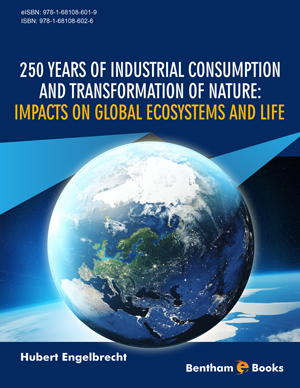Abstract
The transformations caused by industrialisation are ambivalent: Progress in technology, medicine, science, human well being, mobility, food security, etc. contrasts with the degradation of the environment and implied health impairments for human beings. The latter has occurred, because humans created many more sources than sinks and artificial material flows exceeded the natural ones; in that way, waste and toxic matter accumulated in the biosphere. Genius ideas of scientists and inventors, as well as treasures generated by nature inside the Earth were utilised and exploited economically. Innate behaviour, ideologies, traditional economic systems, and permanent growth marginalised ecological concerns. Insufficient technological diversity, population growth, and energy subsidies entailed dependencies and the risk of resource depletion. Recommendations to avoid further aggravation of the ecological crisis are: Dematerialisation; terminating the use of fossil energy carriers; ecological, social, and humanitarian concerns must be equally entitled beside economic concerns; realistic pricing of products and fair trade; shift to economic systems and human reproductive societies characterised by sufficiency; fostering of positive human creativity and intellect, as well as fine arts, aesthetics, and morals.
Keywords: Creativity, Dependencies, Dematerialisation, Ecology, Economy, Environmental degradation, Exploitation, Extraction, Fairness, Fine arts, Human development, Human spirit, Humanities, Ideologies, Industrialisation, Innate behaviour, Material flows, Morals, Risk society, Subsidies, Sufficiency.












